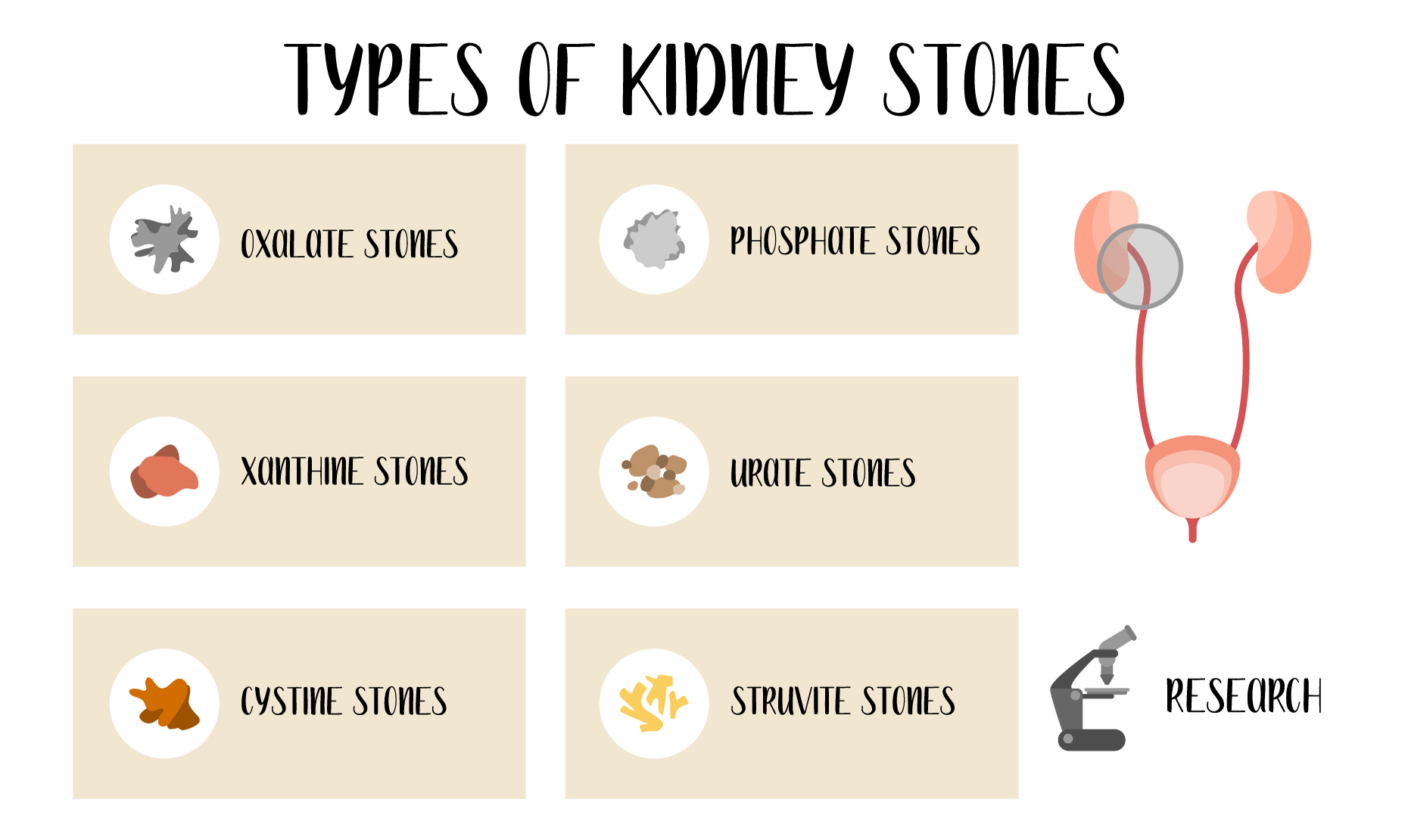Kidney Stones
Brief Overview
Stones in the urinary tract can occur for numerous reasons and can cause a variety of symptoms to no symptoms at all. Some people have kidney stones in their family, as they are hereditary conditions that predispose individuals to form stones throughout their lifetime. Most, however, have another factor which causes them to have one or more stones. Each stone case is very different, and requires a particular personalized approach to stone management, counselling, potential treatment, and the prevention of further stones from occurring. If stones are left untreated, some don’t cause any issues based on their anatomical location, but some can go on to cause permanent irreversible damage to kidneys and eventual kidney failure. It is very important that anybody with stones have a proper assessment of their risk, stone burden, and should be counselled appropriately on the options that are best for them.

Detailed Explaination
Kidney stones are non-dissolved hard mineral deposits that form from your urine. Diet, excess body weight, some medical conditions, and other factors such as supplements and medications may cause kidney stones. While kidney stones may start in the upper or lower part of your kidneys, they may cause trouble in this location, or cause the classic pain as they descend down the ureter to the bladder. The ureters are usually quite small and narrow, and the passage of a large stone causes tremendous discomfort to many. Stones in the ureter can cause spasm, obstruction, infection, bleeding, or severe illness. Depending on the size and location of the stone, you may be treated successfully with pain medication and oral hydration. In other instances, surgery may be needed to relieve obstruction and to treat infection. Surgeries utilized include Ureteroscopy, and Percutaneous Nephrolithotomy ( both endoscopic stone surgeries) as well as Shockwave Lithotripsy.Once acute issues are resolved you may be a candidate for preventive treatment to reduce your risk of recurrent stones.
TREATMENTS & CONDITIONS
Low Testosterone (Male Hypogonadism)
Male hypogonadism is a condition in which the body doesn’t produce enough of the hormone that plays a key role in masculine

Erectile Dysfunction
Erectile Dysfunction (ED) is a medical condition where a man is unable to achieve and maintain an erection that allows for satisfactory sexual function. This can show up

Testicular Cancer
Testicular cancer occurs in the testicles (testes), which are located inside the scrotum and produce testosterone and sperm for reproduction. It is the most common

Kidney Cancer
Kidney cancer can arise at any stage in life, and when caught early, has an excellent prognosis. Surgery, often minimally invasive, is often necessary to remove the primary tumor.



